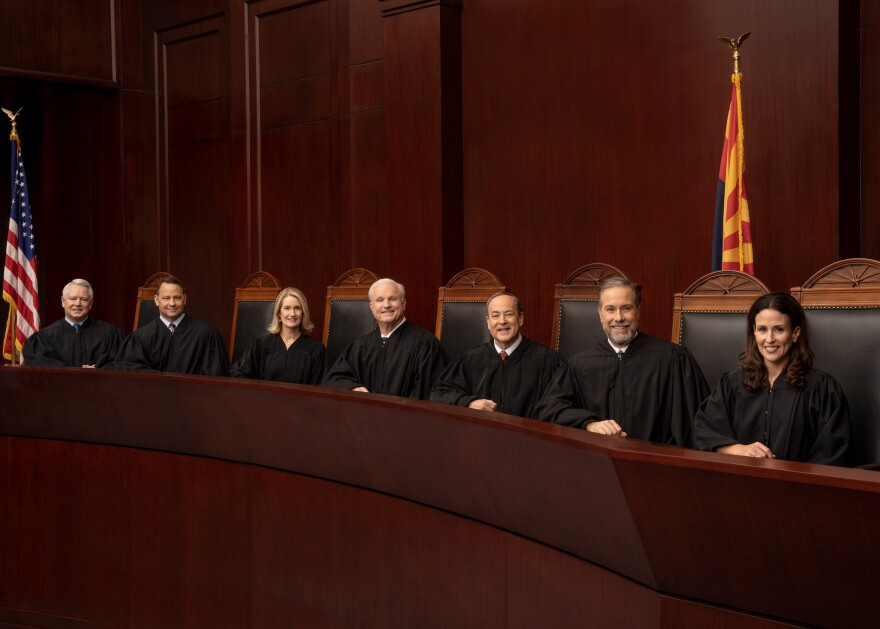By Howard Fischer
Capitol Media Services
PHOENIX -- Arizona's territorial-era law outlawing abortion except to save the life of the mother is enforceable, the state Supreme Court ruled Tuesday.
In a split decision, four of the justices said that the 2022 ruling by the U.S. Supreme Court overturning Roe v. Wade eliminated what that case had said was a constitutional right of women to terminate their own pregnancy.
More to the point, Justice John Lopez, writing for himself and three of his colleagues, noted that state lawmakers never repealed the old law even after the original Roe decision. That means it remains valid.
The majority also rejected arguments that a 2022 law allowing abortion through the 15th week of pregnancy superseded the earlier law.
Lopez pointed out that 2022 measure, adopted as a contingency should the U.S. Supreme Court have upheld a 15-week law in Mississippi, specifically said it did not create or recognize a right to abortion. And it also spelled out that it was not repealing the territorial-era law.
For the moment, abortions will continue to be available through 15 weeks. That is because a judge handling a parallel challenge to the old law issued a legal stay for at least 45 days after the state Supreme Court ruling becomes final.
And Tuesday's ruling allows those challengers to the territorial-era law to now proceed with their own legal theories about why it is unenforceable, which could result in another delay.
But, absent some court action, Arizona could go back to making virtually all abortions illegal sometime later this year. And that will force women here to travel to other states.
The ruling comes as abortion rights advocates are collecting signatures on an initiative measure which would enshrine the rights of women to terminate a pregnancy.
That measure would allow the procedure to be performed for any reason at all until the point of fetal viability, generally considered between 22 and 24 weeks of pregnancy. But it also would permit abortions at any time beyond that to protect the life or health of the mother, verbiage that foes say could lead to legal abortion right up until just before childbirth.
Backers claim to already have collected 500,000 signatures, more than the 383,923 that would have to be found valid to place the issue before voters in November.
But the court's decision could affect whether voters who may be undecided will support the measure.
It essentially means voters will get a clear choice: No abortions except to save the life of the mother or the broad language in the initiative.


